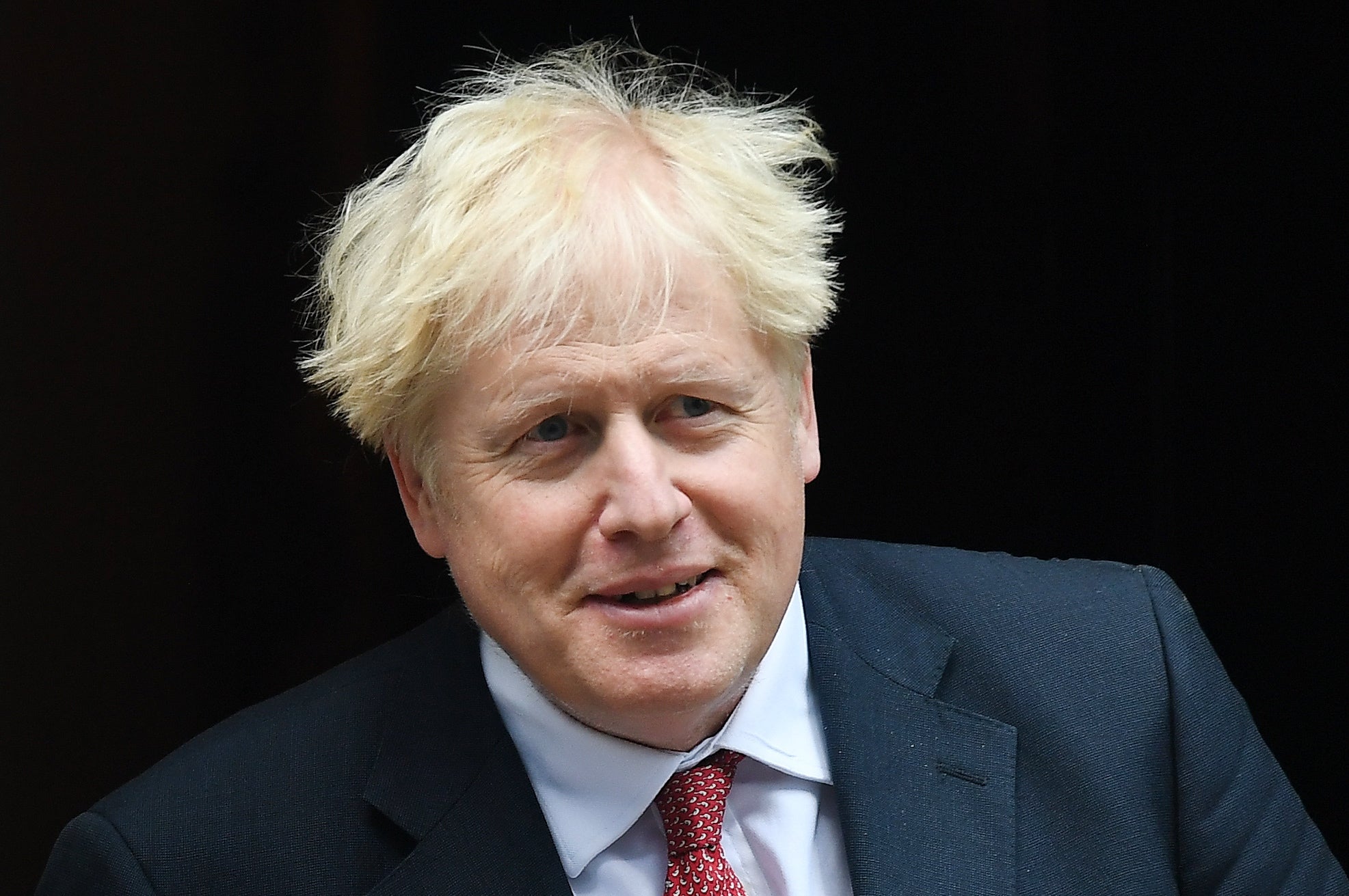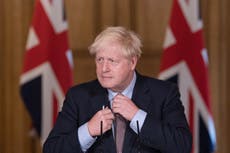Boris Johnson is right about one thing over Brexit – and one thing only
The prime minister has got himself into an international legal hole entirely of his own making – but he is not wholly in the wrong, writes John Rentoul


The prime minister has made a terrible mess of Brexit, and hopes that if there is a big enough fuss about his breaking international law, his Leave voters will rally to him. I suspect that he’s not sure how he’s going to get out of this one, but thinks he’ll be able to find a way, as long as he has public opinion behind him.
Boris Johnson got into this trouble because he was desperate to do a deal last year. He needed a new EU withdrawal agreement to replace the one negotiated by Theresa May that parliament rejected. He managed to get one, but there was a price to be paid: he had to sign up to border checks between Northern Ireland and the rest of the UK.
He presumably thought he could sort out the details later. His priority was to agree a text that he could get through parliament. He succeeded. It involved talking quite fast when he was asked about some of the brain-bending technicalities of the “border in the Irish Sea” and changing the subject.
The Democratic Unionist Party, being from Northern Ireland, understood the problem and refused to vote for the deal, while Conservative MPs who had refused to vote for May’s deal accepted Johnson’s breezy assurances and fell into line. When Labour MPs for Leave constituencies started to vote for it too – it was a gradual, vote-by-vote attrition – the game was up, and Jo Swinson gambled that the only hope of stopping Brexit was to give Johnson the election he said he didn’t want but had to have.
With the election won, it was too late for the prime minister to reopen the negotiations. The withdrawal agreement was bundled through parliament with a minimum of scrutiny, and we left the EU. Within days, on 23 February, Tim Shipman of The Sunday Times was reporting: “Johnson’s Brexit team has been ordered to draw up plans to ‘get around’ the Northern Ireland protocol in the Brexit withdrawal agreement so the prime minister can play hardball with Brussels over trade.”
Now, seven months later, they have given up. The only plan that they have come up with to get round it is to say, of a treaty the prime minister has just signed, that they didn’t mean it, and that they will legislate to renounce it.
That is a bad outcome, as confirmed by even Michael Howard and Norman Lamont, the nearest things the Brexiteer Tories have to statespeople. Put politely, it is a disaster for Britain’s reputation abroad; it has poisoned relations with the EU when we need their goodwill, making tariffs on UK-EU trade more likely; and it will put the ties holding the UK together under further strain.
Yet there is one thing, and one thing only, on which Boris Johnson is right. On the substance of the argument – or on one part of the substance of the argument – the prime minister has a good case.
The withdrawal agreement allows the EU to insist on a form to be filled in when goods are moved from Northern Ireland to the rest of the UK. Johnson was hoping that the joint committee set up to oversee the withdrawal agreement would agree that these forms would not be needed. It would seem that the EU side of the joint committee, led by Maros Sefcovic, the European Commission vice-president who came over to berate Michael Gove on Thursday, has refused to do so.
On this arcane point, Johnson is right. The forms, known as exit summary declarations, are unnecessary. The EU does not need to know about goods that are leaving its single market (which Northern Ireland will remain part of in some respects). The declarations were brought in as an anti-terrorist measure after 9/11, but as far as I know have served no purpose since.
The rest of the Irish Sea border controls make sense. For goods going the other way, from Great Britain to Northern Ireland, it is reasonable to have checks at Northern Irish ports. Those goods might end up in the EU – that is, the Republic of Ireland – and so have to be checked somewhere away from the land border. Given that food and livestock have to be checked at Northern Irish ports anyway for all-Ireland rules on agriculture, it is logical to check everything there, even if many Northern Irish politicians don’t like it.
But the checks on goods going the other way are unjustifiable. Johnson should never have agreed to them. But just because he was wrong then doesn’t mean that he is totally wrong now.
Join our commenting forum
Join thought-provoking conversations, follow other Independent readers and see their replies
Comments

Bookmark popover
Removed from bookmarks